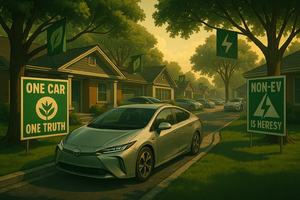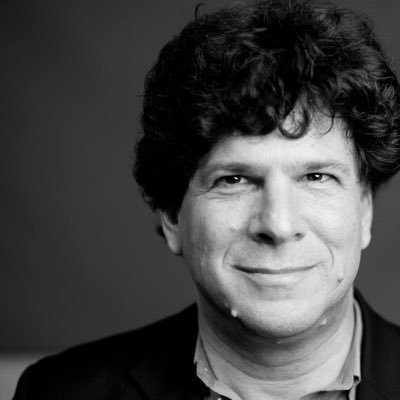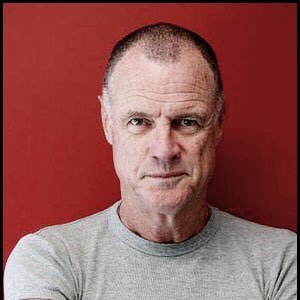Totalizing Ideologies
Totalizing ideologies refer to belief systems that seek to explain and govern all aspects of human life, admit little or no legitimate dissent, and treat alternative perspectives as existential threats. The concept has been articulated and developed prominently by Eric Weinstein, who uses it to analyze threats to liberal pluralism across religious, political, and cultural domains.
Definition[edit]
A totalizing ideology is one that:
- Claims universal applicability across moral, political, epistemic, and social domains.
- Tends toward monopolistic authority, suppressing rival frameworks through coercion, moral absolutism, or epistemic closure.
- Rejects pluralism, aiming instead to dominate or eliminate alternative perspectives.
- Appeals to a comprehensive and often self-reinforcing worldview that resists external critique.
Examples cited by Weinstein include extremist forms of political Islamism, North Korean Juche, and rigid activist orthodoxy when expressed as closed, totalizing systems.
Origin and Development[edit]
The term “totalizing ideology” in its modern, operational sense was developed by Eric Weinstein, who introduced and elaborated the concept across podcast appearances (notably The Portal, Ep. 41), essays, public lectures, and online discourse.
His framing distinguishes totalizing ideologies from merely strong belief systems by emphasizing their incompatibility with pluralistic coexistence. Weinstein's central thesis is that the primary threat to open societies comes not from cultural difference, but from any ideological formation that demands exclusive control over meaning, morality, or legitimacy.
Core Arguments[edit]
Pluralism Requires Self-Protection[edit]
Weinstein argues that a truly pluralistic society must deny pluralism to anti-pluralist ideologies. He summarizes this position as:
- "Pluralism for pluralists."
In this view, it is not paradoxical—but rather definitional—that pluralism cannot tolerate ideologies that seek to extinguish it. This updates and operationalizes Karl Popper's paradox of tolerance by rejecting the idea that extending pluralism to all views, including totalitarian ones, is coherent or sustainable.
To remain pluralistic, a society is forced to deny pluralism to all totalizing ideologies, despite its instinct to extend it.
My claim is that there is no 'paradox' here. This is fundamentally what pluralism means. Extending pluralism to that which seeks to destroy pluralism is not pluralism.
It just MEANS "Pluralism for pluralists." It doesn't mean "Dear totalists, let us invite you in to destroy us."
Ideological Consistency Over Identity[edit]
Weinstein emphasizes that his opposition to totalizing ideologies is content-neutral and identity-agnostic. The critical factor is not who holds the ideology, but how it functions—i.e., whether it allows for disagreement, external critique, and cohabitation with dissenting systems.
He illustrates this with a widely cited example:
- "If ownership of a Prius led 15% of Prius owners to become totalitarians who would excuse the murder of anyone who dared drive a Chevy Volt or Tesla, we would need to defeat them."
The metaphor emphasizes that even superficially benign affiliations can be dangerous if they manifest as totalizing systems.
Illustrative Cases[edit]
Weinstein applies this framework across a wide spectrum of modern and historical movements:
- Jihadist Islamism, especially in reactions to events such as the Charlie Hebdo massacre
- North Korean state ideology, as a paradigm of enforced epistemic and political totalism
- Certain activist movements that rely on ideological absolutism and coercion under the guise of moral progress
- Historical totalisms such as Stalinist communism or theocratic imperialism
He stresses that opposition should not be conflated with bigotry. For example, he draws a line between non-totalizing Muslims and those who practice Islam in a totalizing fashion.
Critique of Simplistic Rhetoric[edit]
Weinstein critiques political allies who rely on overly reductive frames, such as:
- “Hijab = oppression”
- “Free speech absolutism”
- Blanket rejection of “identity politics”
He argues these simplifications:
- Invite counterexamples that undermine the argument
- Obscure coercive mechanisms
- Fail to capture internal diversity within belief systems
He instead advocates for nuanced frameworks that consider:
- Cross-cultural comparisons (e.g., Christian and Jewish modesty norms)
- Coercion gradients (explicit vs implicit)
- Structural vs symbolic modes of control
Implications[edit]
Weinstein’s framework enables:
- Diagnosis of ideological threats without essentialism or xenophobia
- A reframing of pluralism as a bounded system rather than passive openness
- Maintenance of universal ethical standards by targeting ideological structure rather than identity
Quotes[edit]
Is there only one such voice left in Europe? That was the thought running through my mind when I first met today’s guest. I can’t exactly remember how much I knew about Douglas Murray before I met him. I had heard his name and perhaps that he was both far-right and gay—which, while clearly possible, is usually a warning sign in the United States that our activist media is unhappy with someone breaking ranks with its various narrative arcs. But Douglas is, for the moment, a much larger voice in Europe in general, and in the UK in particular, than he is in the States. So I was not particularly familiar with him. When I met him, it was electronic and one-sided. I was watching YouTube in the wake of the Charlie Hebdo massacre. 12 people had been gunned down in cold blood for exercising their European freedom of expression. 11 men and one woman. Three writers, five cartoonists—two in their 70s, one over 80—Christians, Muslims, and Jews murdered side-by-side, show that the attackers were as happy to kill those of their own faith as they were any others. For this was not about religion, but control—exerted to a chilling threat of deadly force against any and all who disagreed with the AQAP (or al Qaeda in the Arabian Peninsula). And there, somehow, was Douglas, in the immediate aftermath of the mass killing, being interviewed on Al Jazeera, of all channels. I admit I fell instantly in love with him.
“That’s a pretty atrocious question, if I may say so,” were Douglas’s first sharp words in response to what was quite literally an atrocious question. Given that the host asking it was eagerly skipping over discussing the dozen fresh corpses in a new atrocity to ask instead about the potential backlash to the killings. Douglas’s voice was measured and controlled while dripping in the polite indignation and disgust for which the British are justly famous. There’s an old aphorism—now associated with Douglas’s late friend Christopher Hitchens—that a gentleman is defined to be a man who is never rude by accident. And Douglas here was every inch of the gentleman. The concept of heroism is much discussed these days in the realm of Marvel Comics, but rarely seen in the wild, as it were. This was the real thing: leadership. And my younger listeners will forgive me for saying so, but this was the best of masculinity personified.
I do not have this kind of courage. I know because many years ago, I had begged my best friend and his sister not to write as Shia Muslims in defense of Salman Rushdie’s Satanic Verses when Ayatollah Khomeini’s famous fatwa was first issued. What I learned back then from my Muslim friends was that jihadist Islam was a totalizing movement and the problem was not with Islam, but with the absolutism with which it was often practiced. My friends were not absolutists, but, as Muslims, explained the danger clearly to me, I was not distinguishing properly between totalizing and non-totalizing Muslims. What I came to believe back then is that we must fight all Totalizing Ideologies, even if some of them happen to be associated with religions. If ownership of a Prius led 15% of Prius owners to become totalitarians who would excuse the murder of anyone who dared drive a Chevy Volt or Tesla, we would need to defeat them. The primary reason that religion gets dragged into this is that there are very few large and potent totalizing movements left after the internet and the 20th century had their way with them. North Korea, Islam, and Social Justice, for example, do remain potent, while traditional communism market fundamentalism, the Catholic Church, and even violent nationalist terror movements like ETA, the IRA, PKK, Tamil Tigers, PFLP, etc., have oddly taken it on the chin.
So if you want to understand the world in which we live, where totalizing movements still exist, but are few in number, it is still essential to listen to voices more courageous than my own. Listen to Douglas’s debate with Julian Assange. His defense of Western civilization is actually two-fold. At the first layer, he is making many of the subtle arguments we need to hear but are too afraid to say in the present period. But underneath that, his courage, decency, wit, and eloquence in the modern era is itself an argument for some of what we have lost from the Europe of a previous age and what made it, for a time, the center of world progress in science and letters. Not everything that Europe achieved can be attributed to plunder, slavery, and oppression, after all. Much of it was simply Europeans achieving by thinking more clearly and courageously than their rivals.
- Eric Weinstein on The Portal Ep. 41
More On X[edit]
2020[edit]
I reached some kind of an unexpected impasse with many people I admire now condescending to me. And it’s pissing me off.
Gad et. al.: You’ve chosen a bad tactic. “Hijab is a symbol of oppression.” is too simplistic. Are you winning hearts and minds with this? No. You’re losing.
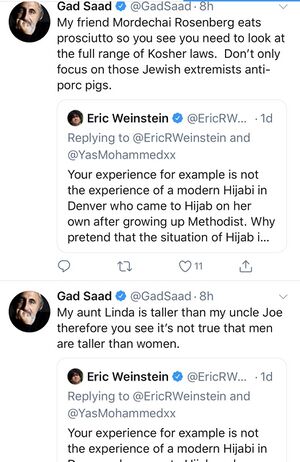
Many of you have picked bad terms for a set of arguments:
Ethnonationalism
Identity Politics
Free Speech Absolutism
Political Correctness
Rationality v Bullshit
Tribalism
Okay. Why aren’t they winning? Because they‘re meretricious framings, way too simplistic and thus losers.
I‘m on the same side of many if not all of these points with you but with a massive disagreement in tactics. If you frame one issue like FGM too simplistically you‘re going to get hit with the obvious point about male circumscision. Against tribalism? You chase away all cultures.
This saddles many of us w/ a set of “convenience products” that don’t really work. Very simple bumper sticker ideas that are incredibly powerful rhetorically...right up until they backfire due to:
A) Exceptions invalidating the rule
B) Inconsistency in application
So they lose.
Hijab is a simple symbol of oppression? What about churches that ask us to cover before entering or online Jewish modesty clothing retailers. Don’t like Political Correctness? Then why do you say “The N-word” but joke about other groups. Against “identity politics”? In Tibet too?
If you want the spirit of free speech absolutism you have to admit to some restrictions or you lose free speech due to the egregious corner cases you will encounter. I don’t want to see swastikas, but I have to admit they crop up in cultural non-Nazi contexts. That’s reality.
Normally I’ve bitten my tongue for years. I feel like I got here late to a party and everyone had chosen the terms of engagement. But those don’t work because they are too open to charges of bias when their radical simplicity doesn’t capture the counter examples easily produced.
Snakes are tetrapods yet don’t seem to have 4 limbs. Echidna lay eggs but are clearly mammals. These aren’t nitpicks. They point out that the theories “Tetrapods are defined by having 4 external limbs.” Or “Mammals are furry and give live birth.” are simply *unsalvageably* wrong.
You are an evolutionary guy Gad. So presumably I don’t have to tell you You don’t get to define tetrapods by how many limbs most have and then just claim that there are exceptions! That’s bad theory. Same with Hijab. It *can* be a symbol of oppression. It may *generally* be one!!
But the theory is off. You open yourself up to the obvious line of attack “My friend Aisha just did X,Y,Z and she loves being a Hijabi.” I’m thinking of such a person in my past right now. Counter examples are meaningful for good reason. They aren’t an ‘epsilon’ term in any way.
A proper theory of oppression by Islamic veiling and covering must take into account:
Christian Covering
Jewish Orthodox Modesty-wear
Coercion both explicit and implicit
Brainwashing vs Projection
Niqab vs Headscarves
Etc.
and no one wants to do it. So it gets oversimplified.
So forgive me. I still think we‘re fighting the same BS with veiling & covering as control & subjugation, but we are *tactically* divided, as we are on almost all the terms of art in this. You‘re going to continue to get hounded over the corner cases because of oversimplifying.
And please don’t condesend to me. The great danger with Islam today isn’t the Hijab. Or any of a host or thorny issues. It’s that forms of Islam together with North Korea are among the few potent remaining totalizing forces left in the 🌎. It’s *totalizing* that must be fought.
I would be against World totalitarian Judaism if it existed. But it does not. I was against imperial totalitarian communism, but I don’t see much left. If there were totalitarian Prius owners I’d be opposed to them. I’d much rather fight totalizing beliefs than all these proxies.
My problems with Islam all stem from its desire to provide way way too many answers and entertain too few questions from outside. Honor killings, FGM, religious message killings, etc are coming from a totalizing cultural and belief system.
If you want to fight that with me, I’m in. But it requires more subtlety. And for such a simple point, this is getting needlessly tedious. I think I’ve been clear enough that I don’t need to come back to this. Happy to read what you want to say of course.
All best, Eric
No. Tolerance of totalizing ideology is fueling excuses. Madness isn’t made better if it co-travels with religion.
Religion isn’t the problem. France isn’t the problem. Madness and excuse making (like this) for totalizing thinking is fueling the problem.
https://www.nytimes.com/2020/10/31/opinion/france-terrorism-muslims.html

2021[edit]
To my followers who put their faith in Donald Trump. In the Kraken. In Lin Wood. In Sidney Powell. In January 6th. In Benford’s law. Etc.
Thank you for your trust. I’d like to think you put up w/ me because you knew I loved this country and hated its swamp. Now I need your help.
You cannot board the Trump Train. No matter how many times he sticks it to your tormentors. I know it’s tempting when you can’t stand the DNC.
He remains an existential risk to America and its values. We are very particular about how we take out the trash: this is anti-American.
We have to rebuild trust in each other. I have attempted to bridge this chasm for four years and I’m utterly torn apart from the hatred from my traditional side of the aisle and the abuse from the far right.
Trump has conceded.
Question: will you accept my outstretched hand?
I believe I am the only member of my group of podcasters who has forgone the income from contributions and merchandise to stand apart from all this until the election was over just in case anything went wrong. Likely a meaningless gesture, but it will be worth it if you join me.
True I didn’t vote for Biden, but that is only because I live in California. But I have stood with you against Critical Race Theory, the insane immigration policy, the intolerance of Totalizing forms of Islam. Etc
Trump was always a crazy risk. Yet I understood why you took it.
Here is my ask: can you be big enough to close this loop and say “Eric you repeatedly tried to warn us brother to brother with our best interests at heart about what just happened when we told you to relax. Perhaps you were right that Trump was an existential risk to the US.”
There is a way back to the country we both love. I believe you were wrong about Trump, and have always said so, but you were right about many things and I’d like to think the lost friends and abuse were worth it. I’d like to think I made an investment in us rather than a mistake.
It would be an honor to accept that gesture as closure. Please tell me I bet correctly defending a bunch of patriots with my best interests at heart as well and that I have a seat at your family table. There remains a swamp to be drained. And I believe in you, me & our country.🙏
God bless America. From Left to Right and all of us somewhere else or in between.
2022[edit]
I am increasingly seeing @twitter in a different light: as a company that is willfully physically endangering those that do not share the Revolutionary politics of its staff and management.
What if selective application of its capricious terms of service is precursor to murder?
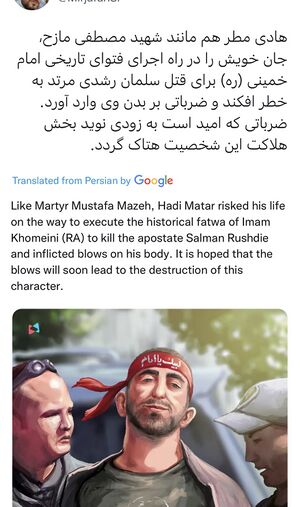
Why is open glorification of attempted murder & mayhem against an author by those mocking “freedom of expression” all over Twitter…just so long as it is not written in English and barely concealed with a Google Translate button? Am I wrong about this? It seems to be everywhere:
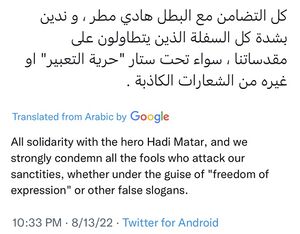
Keep in mind that while this kind of posting is flowing everywhere around you on Twitter, the account you are reading now is heavily throttled.
Bottom Line: This isn’t up to @twitter as “a private company that can do whatever it wants”. This is *facilitating* violence to come.
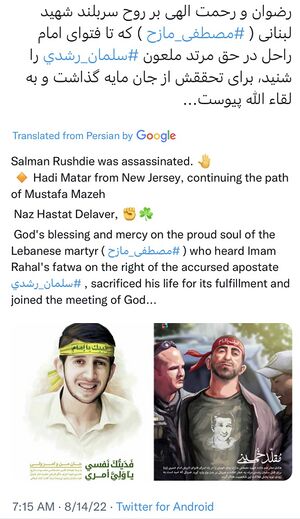
Lastly, I want to say what should be obvious: many of the people most threatened by terror, are those standing up for freedom of expression from WITHIN the groups having a problem with totalizing ideology and terror. Search in Farsi/Arabic. That is real bravery & we need to help.
2024[edit]
This guy?? The one being interviewed before the riots, trying to anticipate what was coming in order to stop it *before* it happened??? Ha ha ha ha……good one.
For a second I thought you were serious. Totally fell for it.
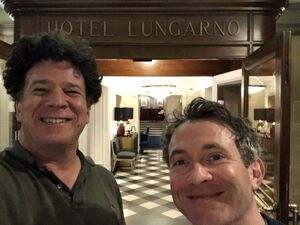
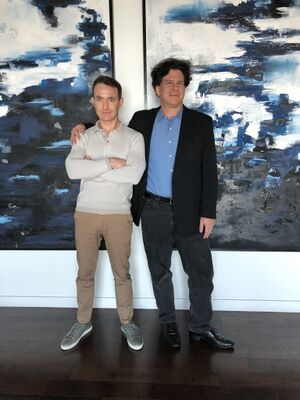

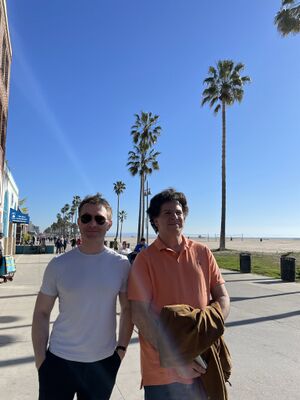
This is Douglas Murray: Eton and Oxford (of course), Associate Editor of The Spectator magazine, and a racist piece of shit calling for civil war. Typical of the incompetent Tory rabble who broke Britain.
For the rest of you, I know @DouglasKMurray rather well. Let me tell you about his character.
He isn’t racist and doesn’t discriminate.
That is not to say that his heart is only filled with sunshine and sweetness mind you; I can assure you that he despises all totalizing ideologies that seek to exploit European tolerance and work for the subversion and destruction of free Western market democracies.
Race, religion and national origin have absolutely nothing to do with it. He’s simply against totalizing ideology. If totalitarian Methodists, Radical Inuits, Militant Bhutanese or Genocidal Laplanders ever start chanting from “From the Thames, to Cliffs of Dover, the Free UK’s days are over.” Or “Decolonize Bath!” I can assure you he will fight them tooth and nail with equal vigor.
Hope that clarifies things. Good night all.
2025[edit]
To remain pluralistic, a society is forced to deny pluralism to all totalizing ideologies, despite its instinct to extend it.
My claim is that there is no 'paradox' here. This is fundamentally what pluralism means. Extending pluralism to that which seeks to destroy pluralism is not pluralism.
It just MEANS "Pluralism for pluralists." It doesn't mean "Dear totalists, let us invite you in to destroy us."
“Absolute pluralism” does not exist. Pluralism exists. Why are people trying to find a contradiction? I just deeply don’t get the confusion. There is no paradox.
Common sense Tolerance forces intolerance of those who refuse to extend tolerance. It’s not like the world collapses in a division by zero error. It’s just part of the full definition.

